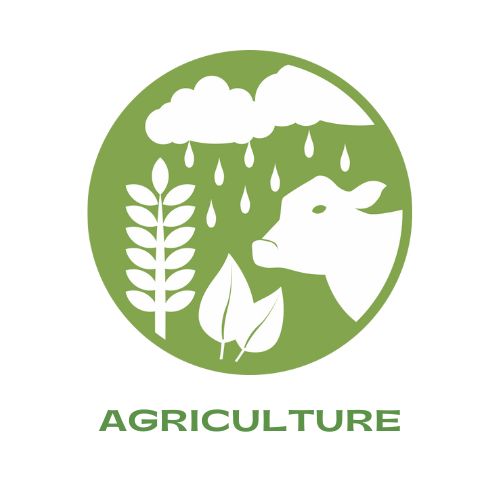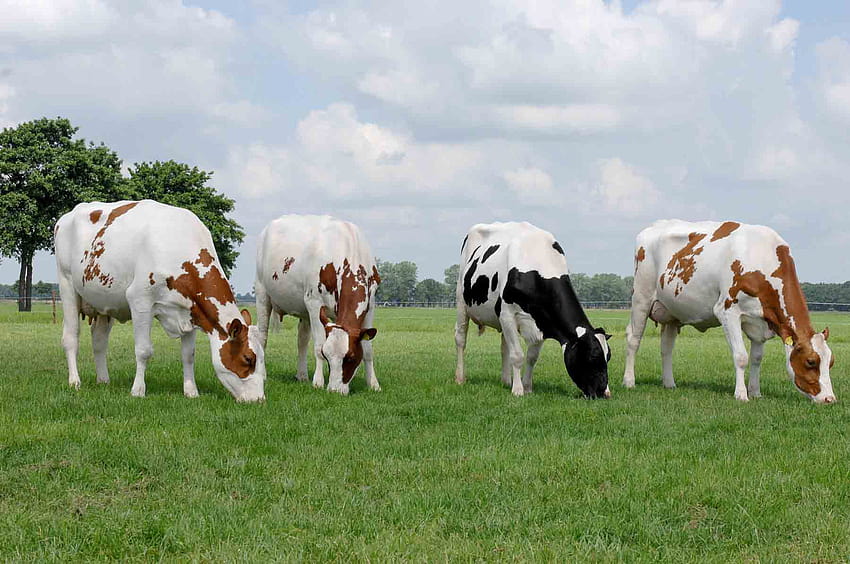For many aspiring Kenyan agripreneurs, launching an agribusiness startup is the ultimate dream. With agriculture being the backbone of the economy, new age farming enterprises present an opportunity to disrupt traditional models and power food security. However, limited access to financing remains the biggest barrier for passionate individuals seeking to turn bold business ideas into reality. Though challenging, with creativity and resilience, capital can be raised to turn ambitions into successful ventures.
6 Common Financing Mistakes Made by Kenyan Agripreneurs
Eager to get started, many budding agripreneurs in Kenya seeking startup funding for their ideas make a few key oversights:
- Mistake 1: Depending Heavily on Bank Loans
Most begin by directly approaching banks for startup loans. But with no land titles or financial records to demonstrate creditworthiness, loan applications are frequently declined. Having no backup financing plans often ends dreams.
- Mistake 2: Overlooking Alternative Financing Routes
Emerging financing avenues like crowdfunding, angel investments, incubator seed funding, and agritech venture capital are not leveraged enough. Multi-pronged approaches are key for sufficient capital.
- Mistake 3: Not Utilizing Government Schemes
Schemes like the Youth Enterprise Development Fund, the Women Enterprise Fund and the Startup Loan Scheme provide access to soft loans. But lack of awareness and complicated applications limit applicants.
- Mistake 4: Not Integrating into Agribusiness Ecosystems
Joining value chains via contract farming for processors and exporters provides financing support through assured offtake. But agripreneurs often overlook this route.
- Mistake 5: Minimal Adoption of Technology
Limited use of technology like hydroponics, precision agriculture etc. that can enhance productivity and overall investability dampens access to tech-focused investors and lenders.
Mistake 6: Overlooking Asset Financing
Leasing assets instead of purchasing preserves capital. It also enables credit history build-up for larger, longer-term loans. But startups overlook this option.
6 Key Challenges Faced by Agripreneurs in Kenya
Some central challenges plague Kenyan agripreneurs’ efforts to raise capital:
- Challenge 1: Lack of Collateral
Banks consider startups high-risk due to lack of land, warehouses or equipment to put up as collateral. First generation agripreneurs struggle most with raising collateral.
- Challenge 2: Absence of Financial Records
Startups unable to show past financial statements demonstrating strong performance and ability to service debts find it difficult to convince risk-averse lenders.
- Challenge 3: High Due Diligence Costs for Lenders
Processing and evaluating agribusiness funding applications involves high costs for banks. Coupled with perceived risks, this limits approved financing.
- Challenge 4: Knowledge Gaps on Funding Landscape
Many agripreneurs lack awareness on the range of financing options or understanding of how to effectively pitch their business plans to different types of funders.
- Challenge 5: Geographic Isolation
Distance from urban agribusiness hubs restricts access to incubators, investors and contract farming networks that can provide embedded financing support and training.
- Challenge 6: Low Technological Sophistication
Minimal use of technology like precision agriculture tools, predictive analytics etc dampens investor confidence about prospects of startups achieving scale.
7 Creative Ways Kenyan Agripreneurs Can Access Financing
Despite hurdles, agripreneurs can access capital through:
- Option 1: Leveraging Equity Financing
Sell minority stakes to angel investors, impact funds or venture capital firms specializing in African agriculture. This accelerates growth in the early stages.
- Option 2: Crowdfunding
Showcase novel ideas on crowdfunding platforms to raise smaller investments from a wider base of individuals. Additional marketing and transparency benefits exist.
- Option 3: Government Backed Schemes
Tap into youth and women focused funds like the Youth Enterprise Development Fund and the Women Enterprise Fund, which offer soft loans with minimal collateral needs.
- Option 4: Contract Farming Partnerships
Become outgrowers for processors and exporters. This provides assured offtake, inputs, and even financing as firms have an interest in ensuring their suppliers thrive.
- Option 5: Asset Financing
Pursue leasing for key assets like greenhouses, tractors, irrigation systems etc. instead of outright purchase. This conserves capital and enables credit history build up.
- Option 7: Specialized Agrifinance Institutions
Explore agri-focused lenders like the Agricultural Finance Corporation which may offer loans on softer terms than conventional banks.
Support Systems to Enable Access to Finance in Kenya
With the right interventions, stakeholders across the agricultural financing ecosystem can facilitate funding for startups:
Financial Literacy Programs
Industry associations must conduct workshops to educate agripreneurs, especially youth and women, on financing options and pitching ideas effectively to increase funding eligibility.
Business Incubators and Accelerators
Incubators tailored for agribusinesses that provide seed capital, mentorship and training equip startups to attract investors by making them investment-ready.
Digital Lending Platforms
Aggregator platforms that connect farmers with lenders lower costs and risks for both sides through scale, enhanced transparency, and algorithmic credit scoring. This expands opportunities.
Government Backed Credit Guarantees
Credit guarantee schemes for agricultural loans where the government absorbs a portion of defaults enable banks to advance credit with lower risk. This unlocks debt for startups.
Crop and Livestock Insurance
Bundled insurance services protect against crop failure or livestock loss. Secured harvests improve the investment appeal of agribusinesses as loan risks are lowered.
Favorable Policies
Government initiatives like tax breaks for agrifood tech investors, interest subsidies for agribusiness loans, and relaxed collateral norms signal positive intent and boost confidence.
High-Potential Opportunities to Unlock Growth
Kenyan agripreneurs can leverage emerging trends to access capital and scale up:
Producing for Export Markets
Generating premium produce for overseas demand creates investment-ready agribusinesses through assured revenues and compliance with global standards.
Using Advanced Agritech
Adopting technology like hydroponics, precision agriculture, IoT sensors etc. appeals to tech-investors and unlocks productivity gains. Government policies are also favourable.
Tapping into E-Commerce Channels
Startups leveraging digital sales platforms like Twiga Foods tap into digitally-savvy investors and can raise bridge financing against signed contracts.
Exploring Novel Farming Models Innovative farming systems like aquaponics, solar-powered drip irrigation, and vertical greenhouses distinguish startups for investors seeking disruptive solutions.
Building Agritourism Integrating hospitality like farm stays and tours provides diversified income. Investors see lower risks in such models with multiple revenue streams.
Plugging into Sustainability Trends
Commitment to eco-friendly practices like organic certification, renewable energy use, and biodegradable packaging attracts impact investors and green finance through sustainability-linked loans.
Forming Producer Collectives
Aggregating smallholder farmers into producer companies helps integrate scattered players into the value chain. This structure is favoured by government schemes and investors.
Case Study: Apollo Agriculture in Kenya
Kenyan startup Apollo Agriculture illustrates how creative financing strategies can catalyze growth:
- Initial grant funding from donor agencies enabled testing of the technology-enabled service model for smallholder farmers.
- Venture capital backing subsequently financed national expansion. Investors were drawn by the strong technology integration and scale prospects.
- Partnerships with agribusinesses and contract farming arrangements provided operational financing by securing the supply base.
- Leveraging asset financing helped conserve capital and build credit history, enabling larger debt financing from banks and specialized lenders.
- Tapping into government initiatives like the youth fund supported further widening of the customer base.
The Road Ahead for Aspiring Agripreneurs
The path to financing agribusiness dreams may seem challenging but can be achieved with determination. Here are some tips:
- Immerse yourself in continuous learning on financing options by speaking to peers, attending events by associations, and building digital literacy.
- Evaluate your business model rigorously and optimize it through technologies that improve agronomic and financial viability. Investor discussions also bring value.
- Build funding linkages proactively. Explore diverse sources like family, accelerators, low-interest loans, and anchor partners. Aim for synergistic hybrid financing.
- Compliance with regulations around land acquisition, water use and environmental policies is important for investors. Seek expertise where required.
- Don’t be rigid about your original idea. Investor feedback and market realities may necessitate modifications. Focus on creating a sustainable venture.
The rise of entrepreneurial agribusiness startups leveraging technology is set to transform Kenyan agriculture. But this will need patient, creative financing by bold founders. By tapping diverse funding sources, partnerships, and evolving government initiatives, capital can be raised to turn inspiring dreams into thriving farm enterprises. Take it step by step, gain experiential knowledge, refine the model, and stay determined. With fundamental financing in place, your agribusiness journey can flourish sustainably. Kenya’s food systems transformation awaits your ideas and action!
#AgribusinessStartup #Agrifinance #FundingStrategies #Innovation #SustainableAgriculture 🌾🚀💡
About The Author
Terry Mbaluka, Independent Agricultural Investment Specialist
Terry is an agricultural economist with experience in designing financial inclusion models for smallholder farmers across East Africa. She works closely with agripreneurs, guiding them on business strategy, fundraising approaches, and responsible scaling.













